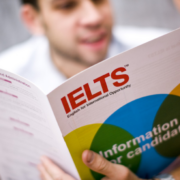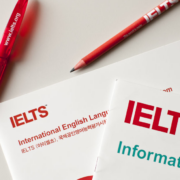Navigating the IELTS Listening Section: Strategies for Effective Note-taking and Comprehension
Are you preparing for the IELTS Listening Section? This crucial part of the IELTS exam can be challenging, but with the right strategies, you can improve your note-taking skills and enhance your comprehension. In this blog post, we’ll explore effective techniques for navigating the IELTS Listening Section, including how to take notes efficiently and improve your overall performance.
Also Read: How Can I Get 8.5 in IELTS Academic Test
Understanding the IELTS Listening Section
The IELTS Listening Section assesses your ability to understand spoken English in various contexts, such as conversations, monologues, and lectures. This section consists of four parts, each with its own set of questions and tasks. To succeed in the IELTS Listening Section, it’s essential to develop effective note-taking skills and employ strategies that help you focus, retain information, and answer questions accurately.
Importance of Effective Note-taking
Effective note-taking is crucial for success in the IELTS Listening Section. Taking accurate and concise notes allows you to capture key information, identify important details, and follow the flow of the audio recordings. Moreover, well-organized notes serve as a valuable reference when answering questions and completing tasks during the exam.
Strategies for Taking Notes During the IELTS Listening Section
- Listen for Keywords: Pay attention to keywords and phrases that provide essential information or signal changes in the conversation. Highlighting keywords in your notes can help you stay focused and quickly locate relevant information when answering questions.
- Use Abbreviations and Symbols: To save time and space, use abbreviations and symbols in your notes. For example, use “w/” for “with,” “b/c” for “because,” and arrows or bullet points to indicate relationships or sequences.
- Focus on Main Ideas: Instead of trying to write down every word you hear, focus on capturing the main ideas and key points. Summarize information in your own words and avoid unnecessary details that may distract you from the main message.
- Organize Your Notes: Organize your notes in a clear and logical manner to facilitate comprehension and retrieval of information. Use headings, subheadings, and indentation to create a hierarchical structure that reflects the flow of the audio recordings.
Tips for Improving Comprehension
In addition to effective note-taking, there are several strategies you can use to improve your comprehension during the IELTS Listening Section:
- Predictive Listening: Anticipate what the speakers will say based on context clues and your knowledge of the topic. Predicting content can help you anticipate key points and follow the conversation more effectively.
- Focus on Tone and Intonation: Pay attention to the tone, intonation, and emphasis of the speakers’ voices. These vocal cues can provide valuable information about the speakers’ attitudes, opinions, and intentions.
- Monitor Your Understanding: Continuously monitor your understanding of the audio recordings and adjust your listening strategies as needed. If you encounter unfamiliar vocabulary or concepts, try to infer their meanings from context or use your notes to clarify.
- Practice Active Listening: Engage actively with the audio recordings by asking yourself questions, making predictions, and summarizing key points. Actively listening helps you stay focused and retain information more effectively.
Practice Makes Perfect
Consistent practice is key to mastering the IELTS Listening Section. Set aside regular study sessions to listen to audio recordings, take notes, and answer practice questions. Focus on a variety of listening materials, including conversations, lectures, interviews, and monologues, to familiarize yourself with different accents, speech patterns, and topics. The more you practice, the more confident and proficient you’ll become in understanding spoken English.
Time Management
Effective time management is essential for success in the IELTS Listening Section. Allocate enough time to listen to each audio recording carefully, take notes, and review your answers. Pace yourself throughout the exam to ensure that you complete all tasks within the allotted time. Prioritize questions based on difficulty and mark any items you’re unsure about to revisit later if time permits.
Review and Reflect
After completing practice tests or mock exams, take the time to review your performance and identify areas for improvement. Analyze your notes, answers, and listening strategies to pinpoint any weaknesses or recurring mistakes. Reflect on your listening comprehension skills and consider how you can enhance them through targeted practice and study. Use feedback from practice tests to guide your study plan and focus on areas that need the most attention.
Conclusion
In conclusion, mastering the IELTS Listening Section requires a combination of effective note-taking skills and comprehension strategies. By practicing these techniques and familiarizing yourself with the format of the exam, you can improve your performance and achieve your desired score. At Global NextGen Professionals, we provide comprehensive IELTS preparation services to help you succeed in all sections of the exam. Our experienced instructors, personalized study plans, and extensive practice materials make us the best services provider for IELTS preparation. Join us today and take the first step towards achieving your language proficiency goals.











Leave a Reply
Want to join the discussion?Feel free to contribute!